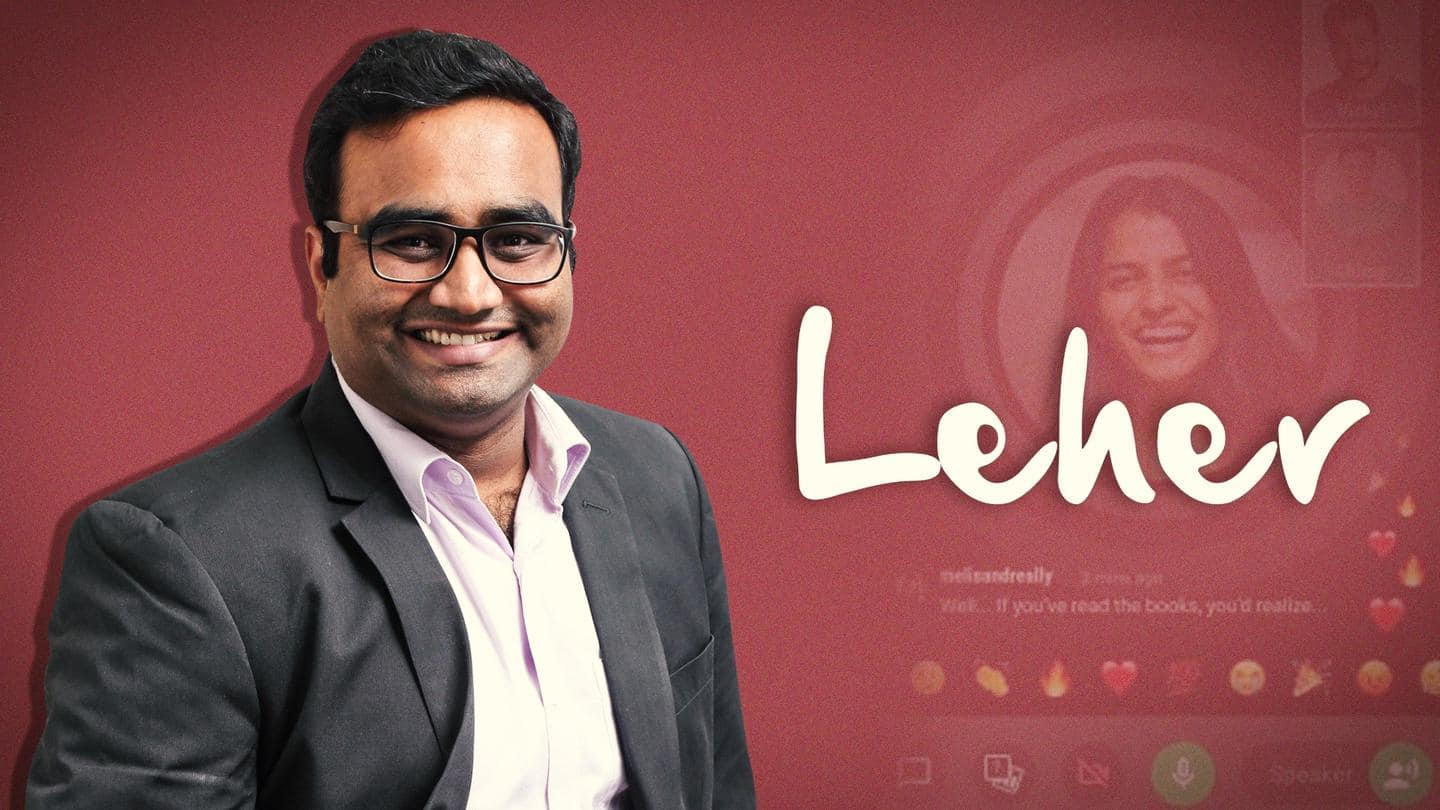
Vikas Malpani's journey spearheading community-first audio-video social media app Leher
What's the story
While the world is fanboying over Clubhouse and its Big Tech clones, Bengaluru-based serial entrepreneur Vikas Malpani has been at it since 2018, shaping Leher to become a world-class audio-video-based social network that revolves around communities and their interests.
In the conversation that ensued, we got a glimpse into Vikas's start-up journey, his vision for Leher, and thoughts on various industry trends.
Early life
SAP experience gave Vikas lowdown on how product-based companies operate
Vikas, an engineer by profession, spent his early years in Assam, Gujarat, and Rajasthan. Around the turn of the millennium, computers piquéd his interest.
After college, Vikas spent 15 months working at SAP Labs where he familiarized himself with how product-based companies operate, and how they are structured. But, when he had to choose between an MBA and starting up, he opted the latter.
First venture
Vikas co-founded CommonFloor, a successful real-estate portal with a vision
In 2008, Vikas joined his friend Lalit Mangal to build CommonFloor, a real estate portal that combines property search, apartment management, and vendor management. In 2015, it raised funds from Google Capital, and in 2016, its acquisition by Quikr made waves. Today, every such portal uses CommonFloor's idea.
Vikas helped transition CommonFloor to a freemium model before taking a year off to ideate.
Ruminating
Vikas observed present-day social media isn't social, it's just media-centric
While working on his next big idea, Vikas observed that people were unhappy with broadcast-style social media platforms where they could have conversations, but only asynchronously.
He told me that internet is being used for discovery, but the next disruption has to be the democratization of discussion in real-time through natural mediums like audio and video. He went on to work on this.
Making waves
Vikas co-founded Leher with Atul for democratizing seamless real-time discussions
Far ahead of Clubhouse and Big Tech, Vikas co-founded Leher in May 2018 with college-time roommate Atul Jaju who spent 12 years working for Goldman Sachs.
From day one, Leher offered both audio and video to interest-based communities where people can have meaningful, real-time discussions.
Today, Jaju manages technology and product development at Leher while Vikas handles growth, strategy, relations, and finances.
Best of all worlds?
Is Leher basically Zoom's intersection with Facebook Groups?
Midway through our conversation, I asked Vikas how Leher differed from platforms like Zoom if it offered real-time audio-video.
Vikas asked me to imagine if I could follow every session's participants, see their interests, and be notified of similar discussions, all while the platform learns about my interests with every session. Well, that's exactly what Leher offers—the best from all major social media platforms.
Competition
We'd only fail if we don't innovate fast enough: Vikas
Leher is mindful of similar emerging platforms (like Twitter Spaces and Facebook Live Audio Rooms), offering monetization avenues for creators via ticketing, subscriptions, tipping, and brand-led collaborations.
However, Vikas thinks disruptive ideas along with fast execution will set them apart.
For instance, Leher's nine-member team deploys smaller user experience updates in just a week, he added.
Details
Big Tech great for us because they're creating awareness: Vikas
Vikas has no qualms about the growing competition from Clubhouse and Big Tech offerings because of a fundamental difference.
He told me that while rivals let metrics steer platform-related business decisions, Leher remains focused on building meaningful communities and providing them a contemporary mode of seamless real-time interaction.
Vikas believes that audio-based mediums are the "in thing" today, but communities are here to stay.
Huge grey area
Social media intermediary guidelines are in the platforms' best interest
When I sought his take on the Indian government's guidelines for social media intermediaries, Vikas said that the platforms are being made accountable by having a grievance redressal mechanism.
However, parts of the rules mandate sharing information about the originators of flagged content, which appears to restrict the freedom of speech, a huge grey area that can be interpreted as government overreach, he added.
Road ahead
We need world-class apps from India, not Indian apps: Vikas
Leher's core users are inquisitive and enthusiastic young professionals. Vikas says that an omnipresent challenge is to shift users' perception that Indian start-ups can make world-class platforms.
His start-up has received an undisclosed amount of funding from blue-chip investors and professional angels.
They plan to continue adding new tools to provide its core users with opportunities to fulfill the need for natural conversation.